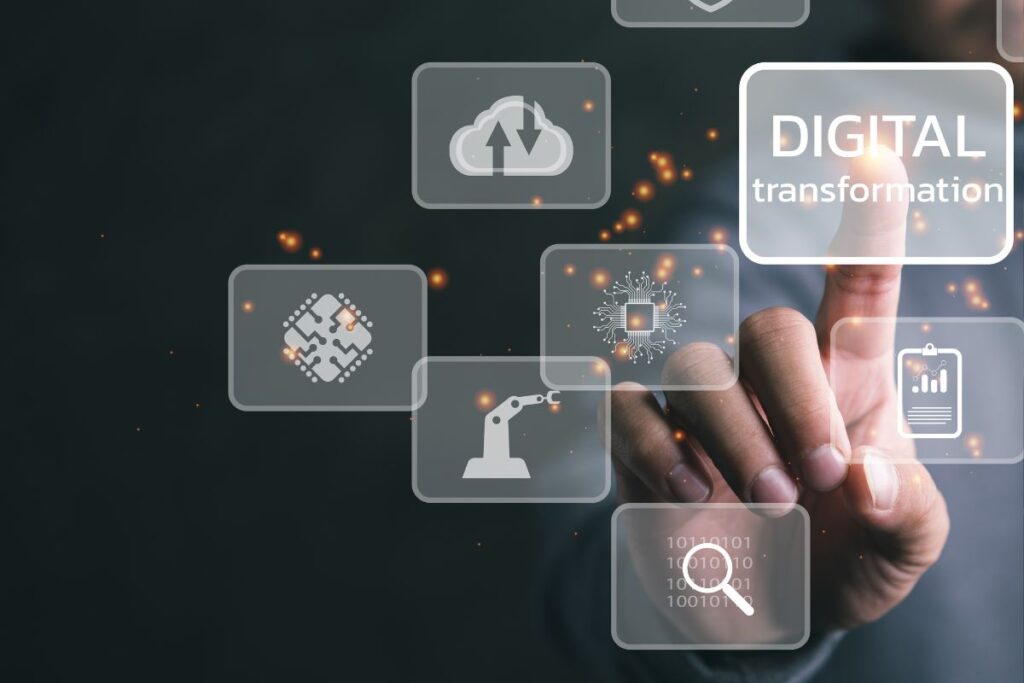Digital literacy exceeds competitive advantages because it is an essential factor for economic preservation while enabling growth in the present technologically driven society. Your success in work and your ability to earn money depend on your proficiency with digital tools, regardless of your position as a corporate employee or independent worker.
The OECD report establishes a link between digital competencies and labor market success because people with digital skills obtain better employment positions and higher salaries. The rising digitalization of work environments demands basic knowledge of technology operations to succeed.
Summary:
- Digital Skills Drive Higher Income: The four components of digital literacy, which include data analysis, digital communication, cybersecurity, and content creation, directly improve both employment possibilities and financial potential. Experts with digital competencies secure higher annual pay at 29 percent above the norm.
- Essential Tools and Platforms for Career Growth: People who understand how to use cloud collaboration tools, digital financial applications, and online learning platforms will achieve efficient work and quick adaptation, along with opportunities to become self-employed or entrepreneurs.
- Building and Showcasing Digital Competency: The first steps toward career growth require professionals to measure their skills before getting help with digital literacy education and using them in practical settings. In the modern digital economy, online credibility and visibility grow through E-E-A-T (Experience, Expertise, Authoritativeness, Trustworthiness) demonstrations.

Table of Contents
What is Digital Literacy?
Digital technology users demonstrate digital literacy when they find information, evaluate it for quality before using it, and finally create new digital content. The skill set of digital literacy includes competencies that involve digital communication, data analysis, cybersecurity, and content creation.
According to the American Library Association, digital literacy means using Information and Communication Technologies (ICT) to locate information while evaluating it, creating new content, sharing it effectively, and possessing both technical and cognitive abilities. The holistic definition of digital literacy shows that electronic device operation alone does not define it since it involves critical thinking and digital space responsibility.
Why Digital Literacy is Crucial for Your Career
Digital change processes operate at a phenomenal speed. The World Economic Forum indicates that 85 million jobs will disappear through automation by 2025, while 97 million positions will arise that feature human-algorithm machine functions. The upcoming job market requires workers who possess strong digital abilities.
According to Jan Owen, executive Chair of Learning Creates Australia, digital competencies have reached a level that matches basic skills such as reading and writing.
Acquiring digital skills enables people to access better-paid positions, simplifies career transitions, and enables them to establish their businesses. Quick adaptation emerges as a crucial ability in present-day work environments because training develops this capability.
Essential Digital Literacy Skills to Increase Earning Potential
1. Data Literacy
The workforce today strongly desires employees who possess data literacy skills, which enable them to interpret and use data for decision-making.
- An analysis by Tableau, which Forrester conducted, demonstrated that business leaders declared data abilities essential for success; however, employee confidence ratings regarding data work remained at 33%.
The ability to interpret data lets you make decisions that enhance results while increasing your financial rewards. This is especially true when analyzing web traffic, customer feedback, and financial report assessment.
2. Digital Communication
Organizations must establish clear digital communication methods, which are a business necessity. The skills required for remote work include conference management, email correspondence, and the usage of collaboration platforms, including Microsoft Teams, Zoom, and Slack.
According to the Harvard Business Review, digital communication is now the main mode of interaction among employees in many modern organizations. Your ability to master digital communication makes you more productive and more attractive to hybrid and full remote work positions.
3. Social Media & Content Creation
Strategic online presence management leads organizations to discover new partnership opportunities, client acquisition, and employment possibilities. Specific knowledge of making compelling content alongside LinkedIn brand development abilities along with meaningful audience connections can generate actual profit streams.
The digital marks you leave behind serve as your initial professional introduction to the world. According to Neil Patel, a digital marketing expert and co-founder of NP Digital, strategy is essential to career development.
Network creators and professionals boost their earnings through sponsored content, affiliate marketing, and consulting services because of their digital literacy expertise.
4. Cybersecurity Awareness
Developing advanced digital risks requires essential knowledge for device and information protection. The practice of creating powerful passwords, detecting malicious email schemes, and activating two-factor authentication has become mandatory.
Cybersecurity Ventures indicates that global expenses from cyberattack activities will exceed $10.5 trillion annually by 2025. A company rates employees with skills in protecting confidential information as particularly strong in the healthcare, finance, and education sectors.
5. Digital Financial Tools
Your ability to save time and money through the effective use of digital financial tools applies to salary management, freelancing income, and business operations. Online banking apps, invoicing platforms, budgeting tools, cryptocurrencies, and investment apps form part of this set of tools.
PayPal, QuickBooks, and Wave are ideal tools for freelancers and solopreneurs because they ease payment processing and financial tracking operations. Performance excellence in this field produces operation efficiency with better financial transparency.
6. Cloud Collaboration
Google Workspace, together with Trello, Notion, and Dropbox, provides teams with a system for collaborating from different locations and across time zones. Understanding cloud systems leads to higher productivity and efficiency among distributed work teams.
Microsoft CEO Satya Nadella claims that cloud literacy enhances work speed and enables worldwide collaboration.
Modern project management operations and content sharing rely heavily on cloud-based tools. Workforces in the technical and marketing sectors and customer service departments require platform proficiency to access high-paying positions.
7. Online Learning & Self-Education
Online platforms enable users to develop new skills, representing one of digital literacy's most outstanding features. Coursera, LinkedIn Learning, and edX offer thousands of free or affordable courses covering everything from Python to photography.
Jeff Maggioncalda, CEO of Coursera, explains that upskilling functions as the modern standard for employment protection. The data shows that education progression creates definite relationships that drive workplace progression.
Students who learn independently achieve better results than students who depend solely on traditional schooling. Modern companies accept online certifications and micro-credentials as proof of expert abilities.
Real-World Impact of Digital Literacy on Income:
The following sections analyze the direct income-increasing impact that digital literacy produces.
- According to LinkedIn research, digital experts achieve salary benefits of 29 percent compared to professionals who do not possess digital expertise.
- Burning Glass Technologies performed research demonstrating that positions needing digital competencies deliver average annual salaries of $20,000 higher than positions without digital requirements.
- Google's Digital Garage initiative has provided digital skills training to more than 10 million Europeans, who have used these skills for career advancement and business expansion.
According to Matt Brittin, president of Google Europe, the effective use of digital tools has transformed baristas into digital marketers, while artisans now run international shops.
Digital literacy is one of the limited tools that enables people from all economic levels to enhance their financial success.
How to Get Started: Building Digital Literacy for Career Growth
Achieving career growth in your earning power begins with these five steps for building digital literacy and maintaining it:
- Your current abilities can be inspected through online assessments or LinkedIn Skills Assessments and quizzes.
- You can easily and efficiently learn through digital literacy support, which exists at community centers, local libraries, and online mentoring platforms.
- Register for entry-level courses on Udemy and consider Khan Academy and Google Digital Garage to select appropriate learning platforms.
- Learning becomes more effective when you put your acquired skills to practical use, such as by offering aid to nonprofits through social media or by working as a freelancer on Fiverr.
- Modern technology changes rapidly because new developments occur quickly. Subscribe to tech-related blogs, sequential YouTube channels, and regular newsletters to maintain your technological advantage.
E-E-A-T and Showcasing Digital Literacy Online
The foundation of credibility for freelancers, content creators, and entrepreneurs requires demonstrating Experience, Expertise, Authoritativeness, and Trustworthiness (E-E-A-T) on all online platforms.
The article from the Search Engine Journal states that audience trust can increase through direct tool experience and platform usage while linking to authoritative sources, which creates audience and Google search trust.
Evidence of E-E-A-T and digital competency can be shown through digital portfolios, sharing case studies, developing thought leadership content, and gathering client feedback.
Conclusion
Every person needs digital literacy skills beyond IT specialists and content developers. Digital competence in today's shifting employment landscape enables people to access improved career positions, independent work, and business startup possibilities.
People who cannot learn, unlearn, and relearn during the 21st century will be considered illiterate, according to Alvin Toffler. — Alvin Toffler
The current investment in digital literacy skills will increase your future income potential.





